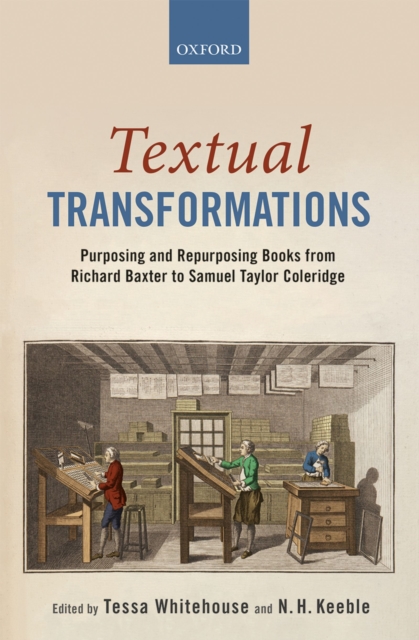
Textual Transformations : Purposing and Repurposing Books from Richard Baxter to Samuel Taylor Coleridge PDF
Edited by Tessa Whitehouse, N. H. Keeble
Description
Early modern books were not stable or settled outputs of the press but dynamic shape-changers, subject to reworking, re-presentation, revision, and reinterpretation.
Their history is often the history of multiple, sometimes competing, agencies as their texts were re-packaged, redirected, and transformed in ways that their original authors might hardly recognize.
Processes of editing, revision, redaction, selection, abridgement, glossing, disputation, translation, andposthumous publication resulted in a textual elasticity and mobility that could dissolve distinctions between text and paratexts, textuality and intertextuality, manuscript and print, author and reader or editor, such that title and author's name are no longer sufficient pointers to a book'sidentity or contents. This collection brings together original essays by an international team of eminent scholars in the field of book history that explore these various kinds of textual inconstancy and variability.
The essays are alive to the impact of commercial and technological aspects of book production and distribution (discussing, for example, the career of the pre-eminent bookseller John Nourse, the market appeal of abridgements, and the financial incentives to posthumous publication), but their interest isalso in the many additional forms of agency that shaped texts and their meanings as books were repurposed to articulate, and respond to, a variety of cultural and individual needs.
They engage with early modern religious, political, philosophical, and scholarly trends and debates as they discuss awide range of genres and kinds of publication including fictional and non-fictional prose, verse miscellanies, abridgements, sermons, religious controversy, and of authors including Lucy Hutchinson, Richard Baxter, John Dryden, Thomas Burnet, John Tillotson, Henry Maundrell, Jonathan Swift, Samuel Richardson, John Wesley, and Samuel Taylor Coleridge. The result is a richly diverse collection that demonstrates the embeddedness of the book trade in the cultural dynamics of early modernity.
Information
-
Download - Immediately Available
- Format:PDF
- Pages:272 pages
- Publisher:OUP Oxford
- Publication Date:12/12/2019
- Category:
- ISBN:9780192536358
Information
-
Download - Immediately Available
- Format:PDF
- Pages:272 pages
- Publisher:OUP Oxford
- Publication Date:12/12/2019
- Category:
- ISBN:9780192536358






